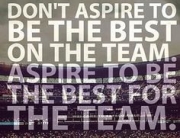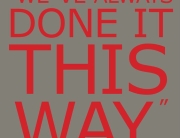 Why don’t we gather more empirical data to make better decisions?
Why don’t we gather more empirical data to make better decisions?How many times have you been involved in a meeting where major decisions need to be addressed but the team members did not come prepared to propose a solution? We often waste time in meetings debating solutions and challenges without the proper preparation. We sometimes overlook setting the proper expectations. Why should we need to tell a seasoned team member to prepare for a meeting? First, we know that people who make the team are not necessarily good players. Second, the definition of a seasoned team member may vary. With that said, defining “seasoned” team member may reduce some static. Lastly, even the best players on the team have bad days. Therefore, as leaders, we need to set the proper expectations by explaining the impact of gathering empirical data. Check this out, if we “walk the walk” or behave the way we preach, the team will have a model to follow to govern themselves accordingly. On the flip side, gathering empirical data comes with a cost which is our time. Keep in mind that every project does not call for extensive research so we need to use wisdom and develop criteria regarding the level of research required to make the best decisions.
Below are five reasons to gather empirical data:
1. Empirical data are like a double-edge sword. It cuts through “opinions” by providing verifiable information.
2. We build credibility when we present empirical data to a client, senior leaders or our peers.
3. Great leaders ask questions; therefore by proactively gathering data, we are able to speed up decisions and fast track projects.
4. Junior people learn and model how to present empirical data.
5. Having empirical data gives you a level of confidence that goes a long way. Confidence is contagious.
How can you spark the curiosity of your organization? Do you have the courage to buck the status quo?
“Research is formalized curiosity. It is poking and prying with a purpose.” -Zora Neale Hurtson







Leave A Comment